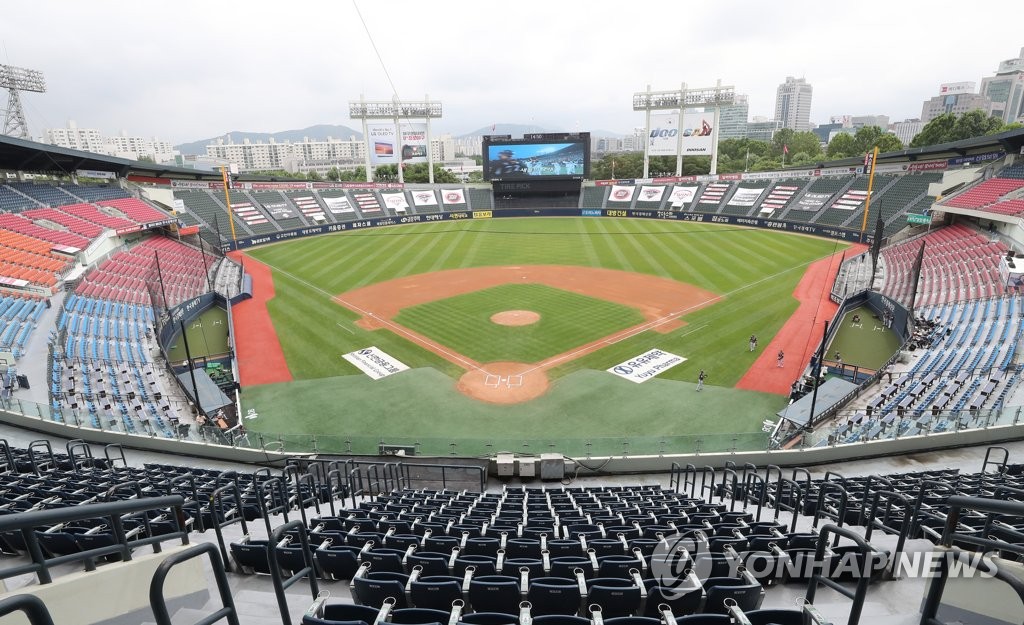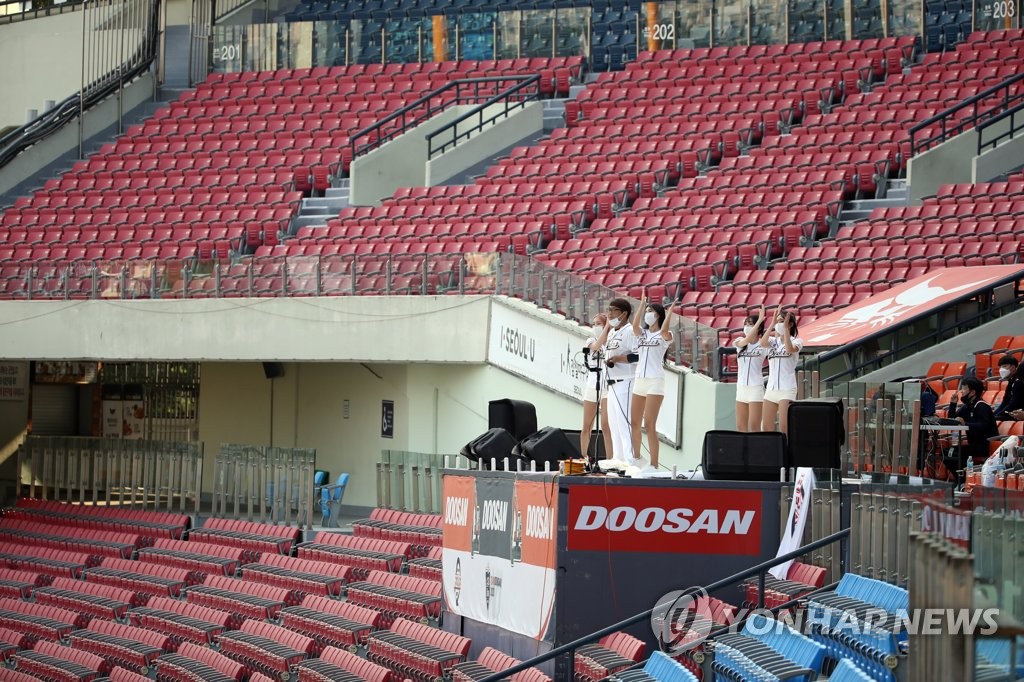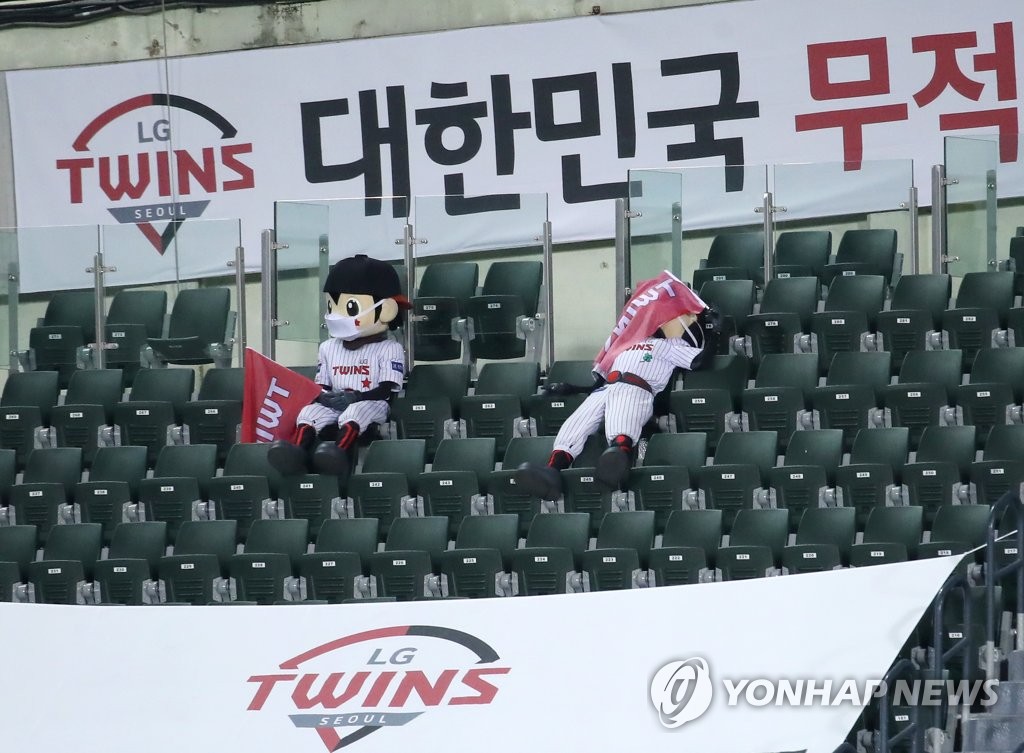- California Assembly OKs highest minimum wage in nation
- S. Korea unveils first graphic cigarette warnings
- US joins with South Korea, Japan in bid to deter North Korea
- LPGA golfer Chun In-gee finally back in action
- S. Korea won’t be top seed in final World Cup qualification round
- US men’s soccer misses 2nd straight Olympics
- US back on track in qualifying with 4-0 win over Guatemala
- High-intensity workout injuries spawn cottage industry
- CDC expands range of Zika mosquitoes into parts of Northeast
- Who knew? ‘The Walking Dead’ is helping families connect
KBO considering QR code registration for fans when stadiums reopen during pandemic
As it prepares to reopen ballparks to fans during the coronavirus pandemic, the South Korean baseball league is contemplating installing an electronic entry registration system at stadiums based on quick response (QR) code.
Ryu Dae-hwan, secretary general of the Korea Baseball Organization (KBO), told Yonhap News Agency Tuesday that QR code is being considered as part of the league’s measures to prevent the spread of the novel coronavirus and to expedite contact tracing in case of positive tests.
The KBO opened its season on May 5 without fans in the stands, and is now hoping to have them back, albeit on a limited basis, by as early as Friday. The government announced Sunday that sports stadiums would reopen for fans, as long as teams provided safe environments.



This file photo from June 25, 2020, shows an empty Jamsil Baseball Stadium in Seoul, before a Korea Baseball Organization regular season game between the Kiwoom Heroes and the LG Twins. (Yonhap)
The KBO released a health and safety manual for fans earlier Tuesday, and under its guidelines, tickets can only be purchased in advance online using credit cards, and box offices at ballparks will be closed.
The manual discouraged fans from purchasing tickets from scalpers because it poses infection risks through contact or droplets.
Ryu acknowledged scalping may never be eliminated entirely, but the bigger concern for the KBO is the possibility of infections among fans with scalped tickets, since it’ll be difficult, if not impossible, to trace their contact.
This is where QR code comes in.
“We’re looking into possibly using the QR code, because it will address the problem with contact tracing for people who buy tickets from scalpers,” Ryu said. “On the other hand, it can also be inconvenient and intrusive.”
Bars and clubs are now required to install QR code-based registration systems for their visitors. The code can be read on an imaging app on smartphones for authentication.
One other potential downside is that it may take some people longer than others to figure out how to scan the code, and it may create a logjam at the gate.
“We would rather not have any crowd forming around the gate, because fans will need to maintain their safe distance,” Ryu said. “The QR code may slow things down at the entry. If we end up installing the system, we’ll make sure to spread things out and have fans come through different gates.”
Speaking of gates, Ryu said another important issue is to keep fans and players separated.
At Jamsil Baseball Stadium in Seoul, players and fans with tickets to reserved seats behind the home plate use the same, central entrance during normal times. But during the pandemic, fans will have to use gates to either the first base or third base sides at Jamsil, home of the Doosan Bears and the LG Twins.
Ryu said the league and teams have been preparing to welcome back fans and they’ll be able to open doors on relatively short notice.
“We’re just waiting for the government to make the final call and we don’t know exactly when that will be,” Ryu said. “But it’s earlier the better for us. We’re also prepared to make adjustments along the way should problems arise.”











